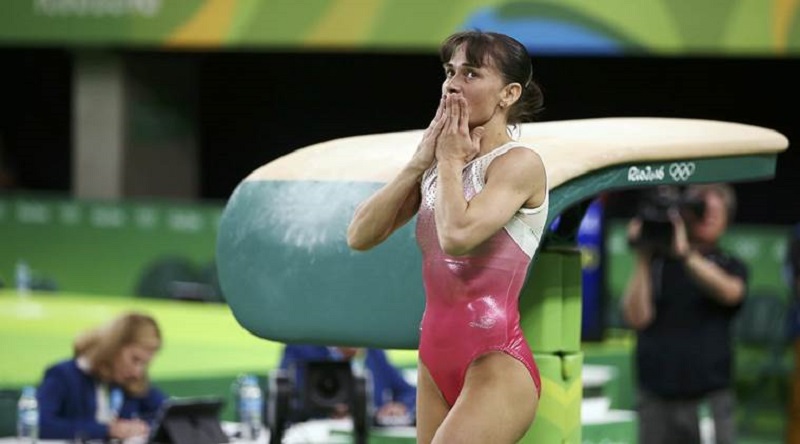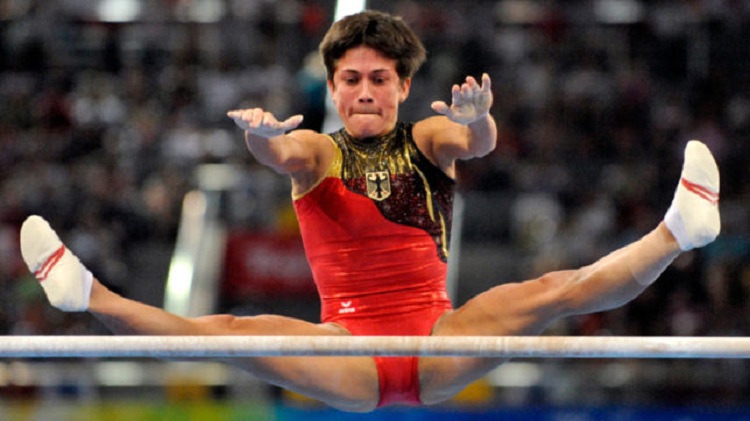Uzbekistan’s 43-year-old gymnast Oksana Chusovitina blew kisses to the crowd as she began her Asian Games campaign on Tuesday — and angrily batted away suggestions this could be her last tournament.
The oldest female gymnast in the competition by far, Chusovitina was greeted by whoops and shrieks from a near-capacity crowd on the first day of the women’s tournament in Jakarta.
But the atmosphere took a minor tumble as the gymnasts filed past journalists at the end of the session — and Chusovitina was asked whether this would be her final tournament.
“No! I want to go to Tokyo,” said a horrified Chusovitina, referring to the upcoming Olympics in 2020.
The mother-of-one, whose first Olympics was in 1992 in Barcelona, became the first gymnast to compete in seven Summer Games when she appeared at Rio 2016.
She appears determined to make it eight.
“It’s my dream (to go to Tokyo),” she told AFP, adding that she still has fun on the gymnastics floor.
Chusovitina is aiming to reach the finals of both the vault and the balance beam.
The clear crowd favourite of the qualification round on day one, Chusovitina — who first competed in 1987– spun into a seemingly perfect first vault to cheers and applause.
And by the end of her second and final flip across the apparatus, her noisy followers reached fever pitch as the mother-of-one blew a stream of kisses into the crowd.
The individual finalists will be confirmed at the end of three qualification divisions on Monday at the Jakarta International Expo, where the women’s all-round final is also being contested.
Despite her extensive fan base Chusovitina told AFP she had no family watching her in the crowd, although her son is following the competition at home in Germany and calls her every day.
At 18, her son Alisha is older than many of the competitors at the Asiad.
Chusovitina’s extraordinary career saw her first competing for the Soviet Union in the 1980s, before she went to the Barcelona Games for the Confederation of Independent States — a unified team of former soviet states — where she won gold.
By the time the 2008 Olympics came around in Beijing, she had switched to Germany after moving there to get treatment for Alisha, who was suffering from leukaemia.
Agence France-Presse
































